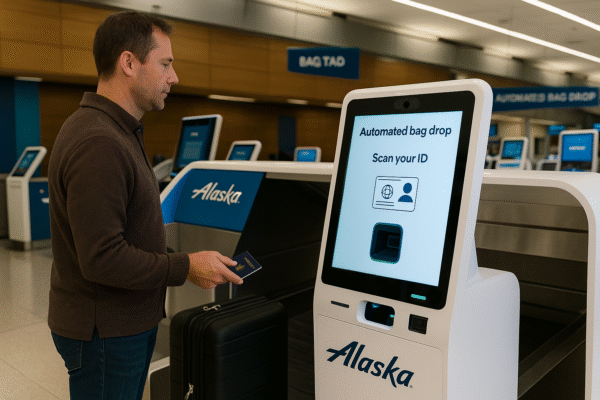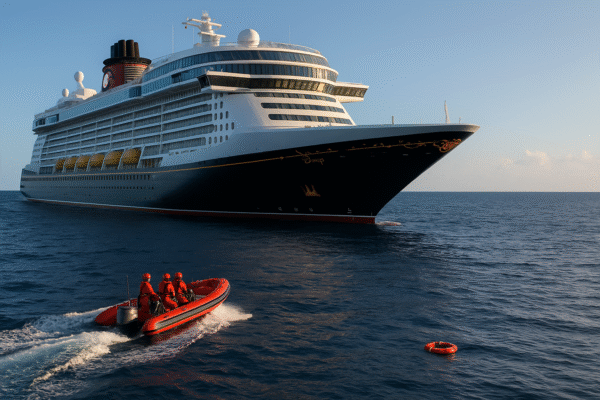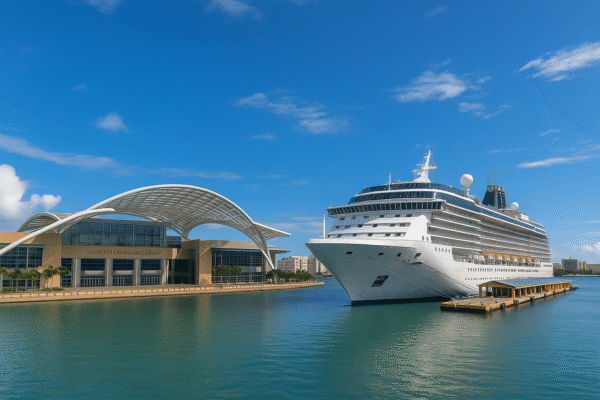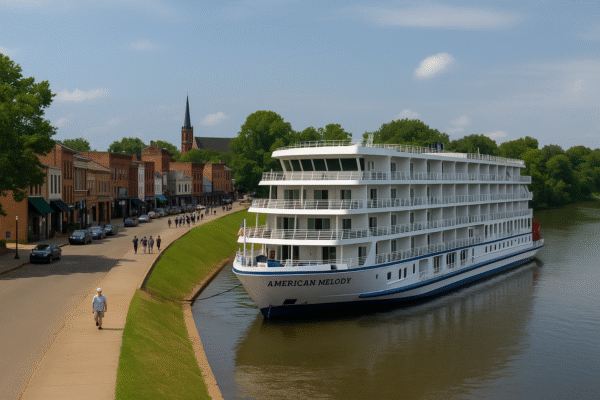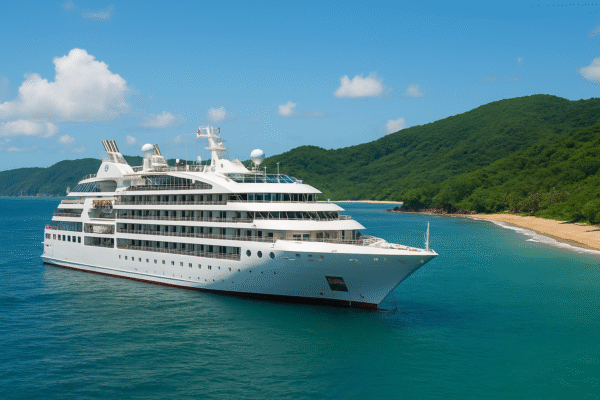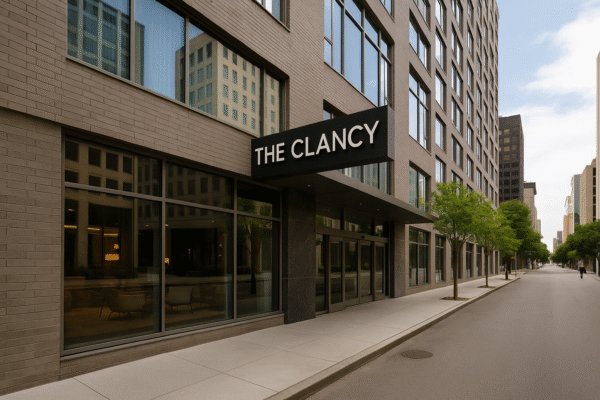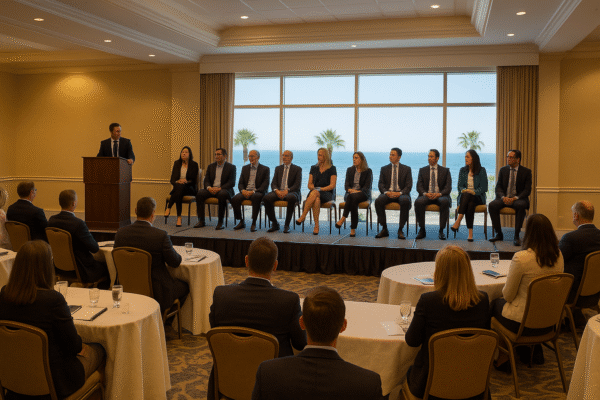Braemar Hotels & Resorts Embarks on Strategic Sale Process
Braemar Hotels & Resorts Inc. (NYSE: BHR), a prominent real estate investment trust (REIT) in the luxury hospitality sector, has initiated a strategic sale process designed to enhance shareholder value. This move follows a comprehensive review of the company’s performance, market dynamics, and the persistent undervaluation of its premium assets in public markets.
The company’s Board of Directors has formed a Special Committee made up entirely of independent directors to oversee the process. The committee is exploring various strategic alternatives, including a full sale of the company or specific portfolio assets.
A High-Value Portfolio Across Key Destinations
Braemar owns a collection of 14 high-end hotels and resorts in some of the most sought-after destinations across the United States. This portfolio includes iconic properties such as:
- The Clancy in San Francisco, California – A 410-room hotel in the vibrant SoMa district, known for its contemporary design and prime location.
- Capital Hilton in Washington, D.C. – A 559-room landmark near the White House, catering to both leisure and business travelers.
- Four Seasons Resort Scottsdale at Troon North in Arizona – A 210-room resort nestled in the Sonoran Desert, celebrated for its luxury spa and championship golf courses.
- The Ritz-Carlton Sarasota in Florida – A 276-room beachfront property offering luxury experiences and access to cultural attractions.
- Pier House Resort & Spa in Key West, Florida – A 142-room tropical retreat located on the island’s iconic waterfront.
These properties have consistently outperformed market averages, achieving high Revenue per Available Room (RevPAR). As of June 30, 2025, Braemar’s year-to-date RevPAR growth stood at 2.9%, nearly three times the industry average of 0.8%, highlighting the resilience and strength of its portfolio.
Financial Position and Strategic Preparations
Braemar is approaching the sale with a strong financial foundation. The company has enlisted Robert W. Baird & Co. Inc. as its financial advisor and White & Case LLP as legal counsel to guide the process.
A significant step in preparing for the sale included signing a Letter Agreement with its external manager, Ashford Inc., reducing a potentially higher termination fee to $480 million. An initial payment of $17 million has already been made, which will be credited if a sale is completed by July 1, 2028. Buyers will also have the option to assume or terminate existing management agreements for an additional $25 million fee.
The company’s balance sheet reflects $68 million in positive net working capital, along with valuable surplus land holdings. These include parcels worth $9.7 million at The Ritz-Carlton Sarasota, $8.4 million at The Ritz-Carlton Lake Tahoe, and $17.8 million at Four Seasons Scottsdale. Additionally, Braemar has reduced debt obligations through the recent sale of the Marriott Seattle Waterfront for $50.8 million, with current total indebtedness at $1.172 billion and preferred stock valued at $473 million.
Market Context and Growth Potential
The decision to launch a sale process comes as Braemar’s leadership recognizes the disconnect between the company’s market valuation and the intrinsic value of its high-performing properties. According to Chairman Monty J. Bennett, the sale offers the best opportunity for shareholders to realize the true worth of Braemar’s assets in today’s market environment.
CEO Richard Stockton emphasized that current market conditions are favorable, citing strong demand for luxury hospitality, limited new hotel supply, and resilient travel patterns. These factors are expected to attract interest from well-capitalized private market buyers, including institutional investors and global hospitality operators.
Tourism and Economic Impact
The potential sale of Braemar’s hotels could have significant ripple effects in the tourism and travel sectors. For destinations such as San Francisco, Washington, Scottsdale, Sarasota, and Key West, the sale of these properties could lead to changes in ownership strategies, management approaches, and guest experience enhancements.
For example, the proposed sale of The Clancy in San Francisco for approximately $115 million, representing a 4.5% capitalization rate, could influence the city’s hospitality landscape. As a popular property for both business and leisure travelers, changes in ownership could reshape investment trends and spur future developments in the region’s hotel industry.
Local economies also stand to benefit or face transitions, depending on the outcome of the sale. New management groups may introduce updated service models, expanded marketing strategies, or rebranding initiatives that could attract even more international visitors to these premium destinations.
Outlook and Next Steps
Braemar has not provided a definitive timeline for the completion of the sale, reflecting the complex nature of transactions of this scale. Shareholders and market observers are expected to monitor periodic disclosures closely, analyzing how potential deals could impact the company’s operational outlook and broader market sentiment in the luxury travel and hospitality sector.
The strategic sale process highlights the company’s commitment to delivering shareholder value while adapting to evolving market conditions. Whether through a full sale or selective asset transactions, Braemar Hotels & Resorts is positioning itself to leverage the strong demand for premium hospitality assets, ensuring that its renowned portfolio continues to thrive in a competitive global market.
For more travel news like this, keep reading Global Travel Wire


